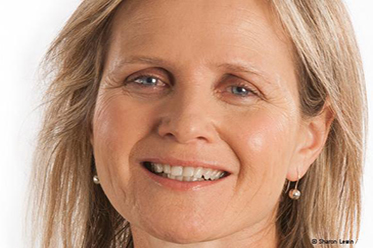 A HIV Cure may one day be scientifically possible but it will require substantial investment and collaboration to have any chance of becoming a reality, leading HIV scientist and Local Co-Chair of the 20th International AIDS Conference (AIDS 2014) Professor Sharon Lewin has told an audience during a public seminar delivered in New Delhi, India.
A HIV Cure may one day be scientifically possible but it will require substantial investment and collaboration to have any chance of becoming a reality, leading HIV scientist and Local Co-Chair of the 20th International AIDS Conference (AIDS 2014) Professor Sharon Lewin has told an audience during a public seminar delivered in New Delhi, India.
“The task of finding an HIV Cure is too big for one laboratory or one country,” said Lewin. “Ultimately, should we be successful in finding a cure, we must also ensure that any cure is affordable and available to all who need it.”
The seminar, hosted by UNAIDS India and the State Government of Victoria in Australia, heard Professor Lewin, who is also Director of the Department of Infectious Diseases at The Alfred Hospital & Monash University in Melbourne, and Co-Head of the Centre for Biomedical Research at the Burnet Institute in Melbourne, outlined recent developments in HIV Cure research that have made global headlines over the past few years.
“Finding a cure for HIV – or a way for patients to safely stop taking antiretrovirals and keep the virus under control – will therefore have a very significant global economic and individual impact,” said Lewin. “The big challenge is this: how to find a way to permanently knock out these last ”reservoirs” of the virus or boost the immune system to keep any remaining virus at very low levels.”
Professor Lewin described how early treatment might be one way to dramatically reduce virus that persists in patients on treatment. Trials that start treatment in babies born to infected mothers are now under way in the U.S. and resource limited settings such as Thailand and South Africa.
Another approach is to wake up the sleeping virus. One specialised anti-cancer drug drug, Vorinostat, was recently shown to do just that in two clinical trials in Melbourne, Australia and in North Carolina. The next step is to wake up the virus more effectively and also find a way to kill the infected cell. An approach that is now referred to as “shock and kill”.
Gene therapy may also be a path to a cure. A few weeks ago, scientists explained that they had successfully genetically modified a patient’s cells to make the cells resistant to HIV infection. Twelve patients received the gene modified cells and these modified cells survived for weeks after the infusion.
“The next step and it is a big one of course, will be to work out how to encourage more gene modified cells to survive and hopefully one day, keep the virus out or in effect curing that patient,” concluded Lewin.
UNAIDS Country Director in India, Mr. Oussama Tawil, said it was promising that the scientific community is making significant progress in HIV research.
“At the same time however, we are continuing to face challenges – existing and emerging ones – including stigma, discrimination, and marginalisation of people affected by HIV,” Mr Tawil said.
Referring to the significance of Stepping up the Pace – the theme of the upcoming International AIDS Conference this year, he added that “at a time when the post-2015 development agenda is being shaped, stepping up the pace must happen on all fronts: so that no one is left behind in the efforts towards achieving the three zeroes – zero new infection, zero new AIDS related death, and zero discrimination.”
“As the Victorian Government’s representative in India I am proud to promote AIDS 2014 being held in Melbourne in July,” said Wayne Lewis, Commissioner to India for the Government of Victoria.
“This event will be a wonderful opportunity for India’s leading scientists, medical practitioners and policy makers to meet and share the latest scientific advances in the field. With over 14,000 delegates from around 200 countries this conference is a wonderful opportunity to advance the world`s collective efforts in the treatment and prevention of HIV.”
The AIDS 2014 Conference runs from 20 – 25 July. For more information, visit: www.aids2014.org for details.
Image: Professor Sharon Lewin – courtesy of The Alfred Hospital

Be the first to comment